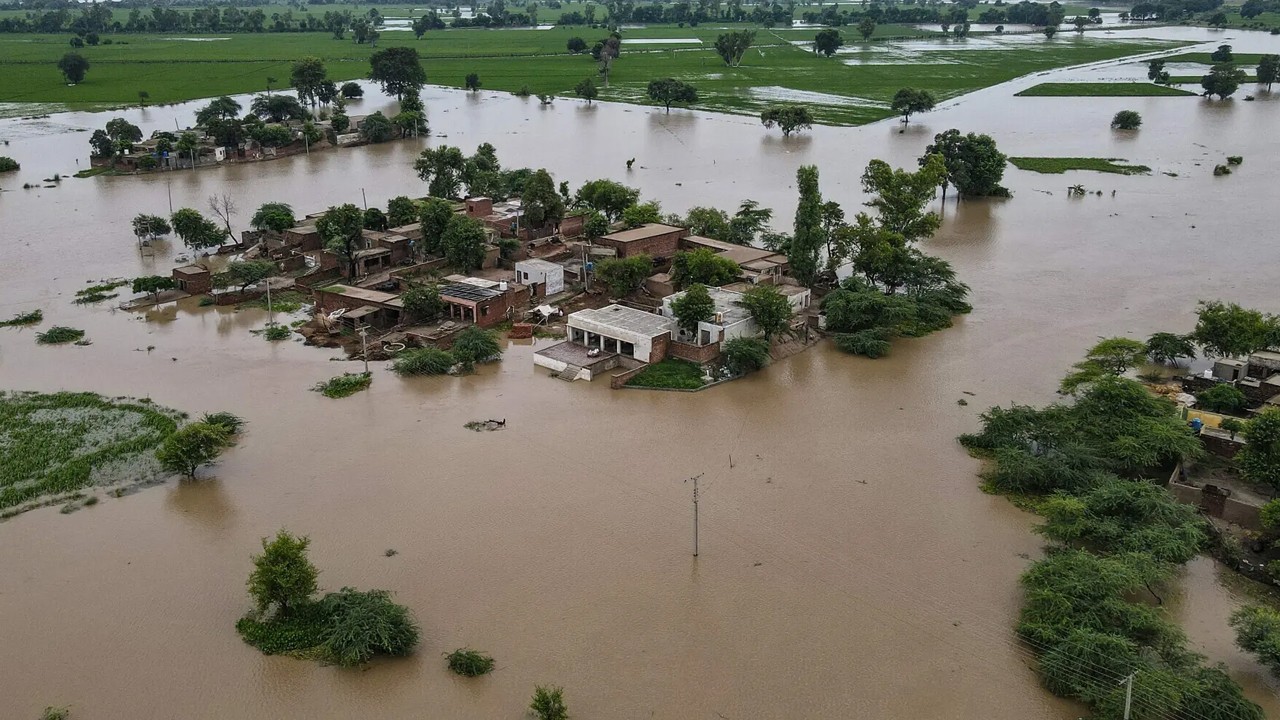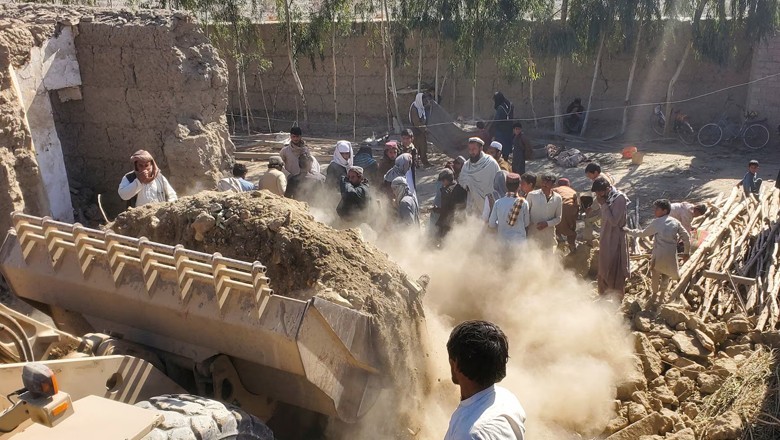Climate change, governance failures intensify Pakistan’s deadly flood crisis

Webdesk
|
27 Aug 2025
Pakistan is once again gripped by catastrophic monsoon floods, with the death toll climbing past 800 since late June — half of them in August alone.
Authorities have issued urgent warnings of a “high flood” in the River Ravi at Shahdara on Wednesday night, as Punjab faces an “exceptionally high” risk due to heavy rains and excess water India has released from dams in Indian Illegally Occupied Jammu and Kashmir (IIOJK).
Officials said all major dam gates in the region have been opened, creating a dangerous downstream flow. More than 167,000 people in Punjab have already been displaced, including nearly 40,000 who evacuated voluntarily after early warnings on August 14.
Entire villages have been swept away in the north, while Karachi — Pakistan’s largest city — has once again been paralysed in the south.
Experts and residents alike blame not only extreme weather but also decades of poor governance and mismanagement.
Climate scientists say global warming is amplifying monsoons, with rising temperatures allowing the atmosphere to hold more moisture, leading to heavier downpours over short periods.
In Buner, Khyber Pakhtunkhwa, more than 150mm of rain fell within an hour, unleashing flash floods and landslides that flattened hillside homes.
The Pakistan Meteorological Department has warned that monsoons will grow more intense in the coming decades, while glacier melt in the north continues to increase the risk of glacial lake outburst floods (GLOFs).
Earlier this month, the Shisper Glacier burst into the Hassanabad nullah in Hunza, destroying farmland and infrastructure.
Although Pakistan contributes less than 1% of global greenhouse gas emissions, it ranks among the countries most vulnerable to climate change.
“Pakistan is paying a big price for international sins,” a provincial lawmaker told the BBC. Former climate minister Sherry Rehman added that global support has been slow, even as Pakistan faces repeated climate disasters.
This year’s floods have been intensified by cloudbursts — sudden, localised downpours that overwhelm rivers and soil, triggering deadly flash floods and mudslides. Emergency teams, hampered by cut-off roads, struggled to reach stricken villages.
But human negligence has worsened the disaster. Despite laws like the River Protection Act, residential colonies continue to be built along riverbeds, blocking storm drains.
In Swat, families who lost homes in 2010 and again in 2022 saw them swept away once more this year.
Deforestation, unchecked logging, and mining have stripped natural defences. With forest cover down to just 5% — the lowest in South Asia — slopes once protected by dense woodland now funnel torrents straight into valleys.
Urban planning failures have also left megacities exposed. Karachi’s stormwater drains, clogged with more than 20,000 tonnes of daily solid waste, overflow during rains, turning streets into rivers. Illegal construction and sewage dumping further choke the system.
A Human Rights Commission of Pakistan (HRCP) report said Karachi’s flooding is “as much about clogged drains, poor waste disposal, encroachments and elitist housing societies as about rainfall itself.”












Comments
0 comment